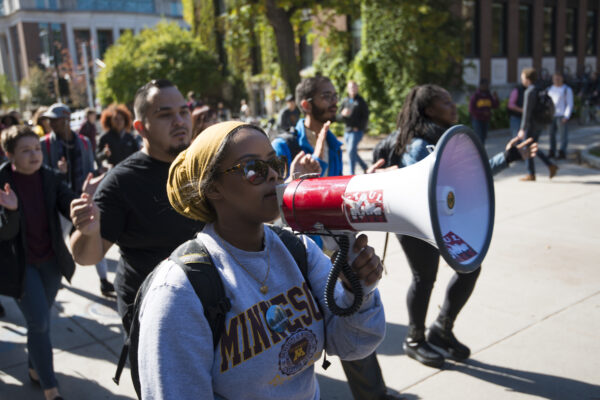ACE2018: Harmonizing Interests in Campus Inclusion and Free Expression—Perspectives and Policy Recommendations
By Zainab Okolo
Understanding the complexities of free speech and expression on college campuses requires multi-faceted and targeted strategies. These strategies include universities correctly interpreting the law, institutional leadership managing expectations from varying stakeholders (i.e. students, parents, faculty, external stakeholders), and dealing with crises preemptively as they arise on campus.
Lorelle Espinosa, assistant vice president for ACE’s Center of Policy Research and Strategy, moderated a panel discussion at ACE2018 that discussed how institutions are addressing the complexities of free speech on campus. The robust panel included Kevin McDonald, chief diversity equity and inclusion officer at the University of Missouri; Travena Byrd, vice president and general counsel at Towson University (MD); and Art Coleman, co-founder of Education Counsel, LLC.
The rich discussion centered around the current political context, looking at varying scenarios where opposing views come to a head on campus. Protest often arises when exclusionary, xenophobic, or harmful views are seen as tolerated by institutions with proclaimed cultures of diversity and inclusion. Not to be silenced, some students express feelings of oppression when their right to speak is limited or stopped by institutional leaders. Panelists discussed strategies for managing student expectations along with legal parameters that universities may want to consider in such situations.
As a takeaway, participants were provided with major guideposts to consider when making decisions regarding campus inclusion and expression on their campus. The guideposts, provided by Art Coleman, include the following;
- The law provides some but not all of the answers
- Institutional missions should be a key driver of decisions
- The question of harm is central to shaping institutional action
- Context matters
- Neutrality regarding viewpoint of speakers should guide institutional action
- Strategies to address issues of inclusion and expression should be comprehensive and a point of continual focus
- College and university presidents have rights to express, too
The panel was successful in offering institutional leaders with actionable solutions and thoughtful questions in addressing free speech-related issues on campus, while challenging them to foster robust and diverse discussions in safe and respectful spaces.
If you have any questions or comments about this blog post, please contact us.


